The hospital, in the commercial hub of Bandra-Kurla Complex, will serve as an isolation facility for non-critical COVID-19 patients.
Expected to be ready in a fortnight, the new makeshift facility can be scaled up to 5,000 beds, if needed.
The Brihanmumbai Municipal Corporation will run the hospital that will have, among other things, oxygen facilities and pathological laboratories.
Sohini Das reports.
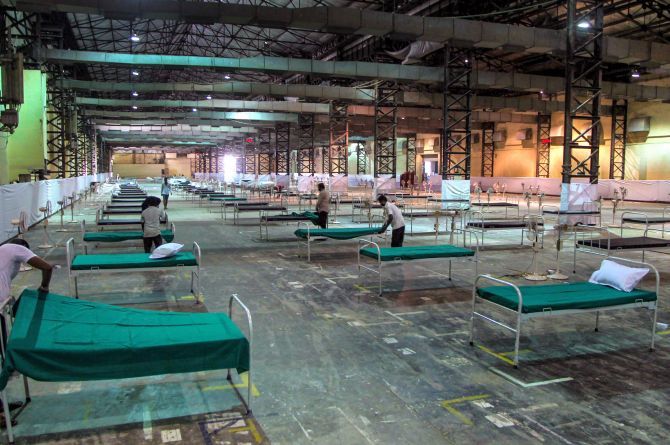
Doctors in Mumbai are scrambling for new and experimental treatment protocol to ensure faster recovery of patients, with the city emerging as the epicentre of India's COVID-19 crisis.
This is a race against time to develop healt care infrastructure, given the city is fast running out of dedicated COVID-19 isolation wards and intensive care units.
The city administration is pulling out all stops to create COVID-dedicated as well as intensive care beds.
On the lines of Wuhan, the Mumbai Metropolitan Region Development Authority has begun work on a make-shift 1,000-bed mega hospital in the commercial hub of Bandra-Kurla Complex.
The hospital will serve as an isolation facility for non-critical COVID-19 patients.
Expected to be ready in a fortnight, the new makeshift facility can be scaled up to 5,000 beds, if needed.
The Brihanmumbai Municipal Corporation will run the hospital that will have, among other things, oxygen facilities and pathological laboratories.
A task force comprising nine top doctors has been created to oversee the treatment of patients.
From experimenting on biological drugs for skin ailments to rheumatoid arthritis on patients in government hospitals -- they have now decided to try a new treatment protocol.
Speaking to Business Standard, Sanjay Oak, member of the task force, said steroids (acting as anti-inflammatory) and low-molecular-weight heparin or LMWH (used in prevention of blood clots) will be given to patients in stage 2b of the disease (or moderate cases).
Stages of the disease are mild, moderate, and severe based on symptoms, respiratory rate, and radiological findings.
“A treatment protocol has been made and circulated among doctors, and we have also held a video conferencing with 600 doctors on Tuesday,” said Oak.
“It is estimated that the city has close to 200 ICU beds to treat critically ill patients. It now has close to 10,000 patients. Even if 5 per cent get critical, we would need 500 beds,” said a doctor.
She added that most of the younger patients did not require intensive care, but the duration of stay for each patient was 15 days minimum.
This was one of the primary reasons for the city’s healthcare infrastructure coming under pressure.
A five-member central team had projected the number of cases in Mumbai to surge to 650,000 by mid-May.
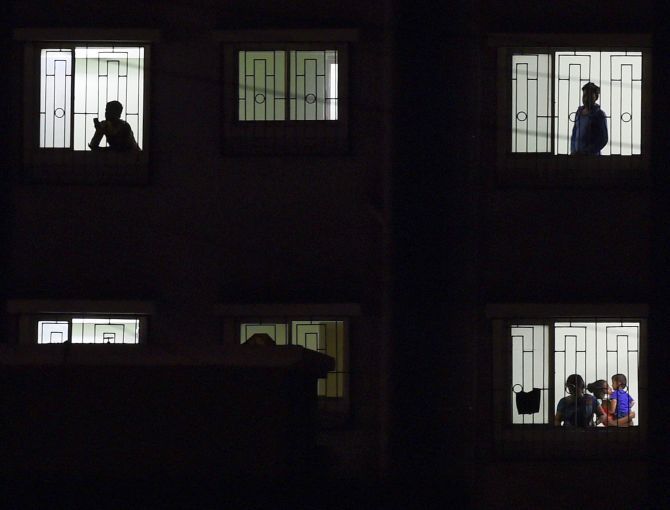
While the state government had then contested the methodology used for mathematical modelling, it had, nonetheless, started work on creating capacities.
Maharashtra Chief Minister Uddhav Thackeray said in a statement on Wednesday that the state government had asked the Indian army, the navy, posts and railways in the state, along with other central organisations, to provide ICU beds.
Local ward officers have been given powers to take over private hospitals and nursing homes to put up ICU beds.
Oak told Business Standard that the projections are huge and it is almost impossible to match the infrastructure to that extent.
However, managing such large facilities would require qualified doctors.
Thackeray said on Wednesday that the state government had set up huge facilities for treating patients at Mahalaxmi Racecourse, Nehru Science Center, Nehru Planetarium, Goregaon Exhibition Centre, BKC, and Richardson & Cruddas factory land, near JJ hospital. Private hospitals have also earmarked some of their facilities for ICU (beds).
As a recourse, more than 25,000 doctors who operate as private practitioners in the city, have now been asked to sign up to treat COVID-19 patients.
In a notification invoking the Epidemic Diseases Act, the Disaster Management Act, and the Maharashtra Essential Service Maintenance (Amendment) Act, T P Lahane, director of Medical Education & Research (Mumbai), reached out to all private doctors asking them to sign up for at least 15 days.
Non-attendance could lead to cancellation of licences.
Oak said that with the kind of facilities being created, allopathic doctors alone could not take care of all the patients.
“Medical students and our ayush counterparts (ayurvedic and homeopathic) will have to be enlisted. They will observe the patients with mild symptoms kept in isolation,” he added.
Meanwhile, the BMC has also asked private hospitals to earmark 20 per cent of their beds for poor patients who have tested positive.
The civic authority will bear the cost of treatment, but according to rates set by the state government.


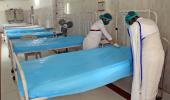
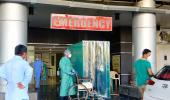
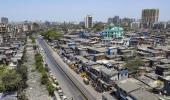
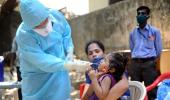



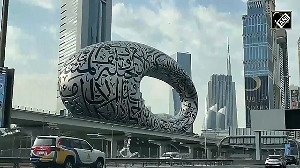


 © 2025
© 2025